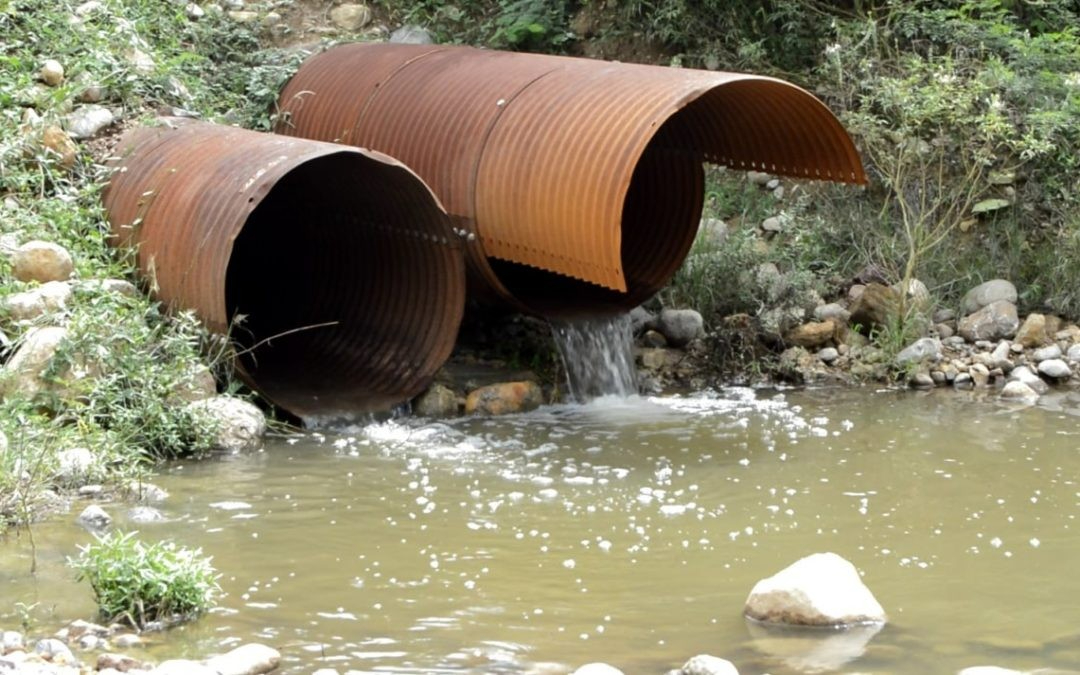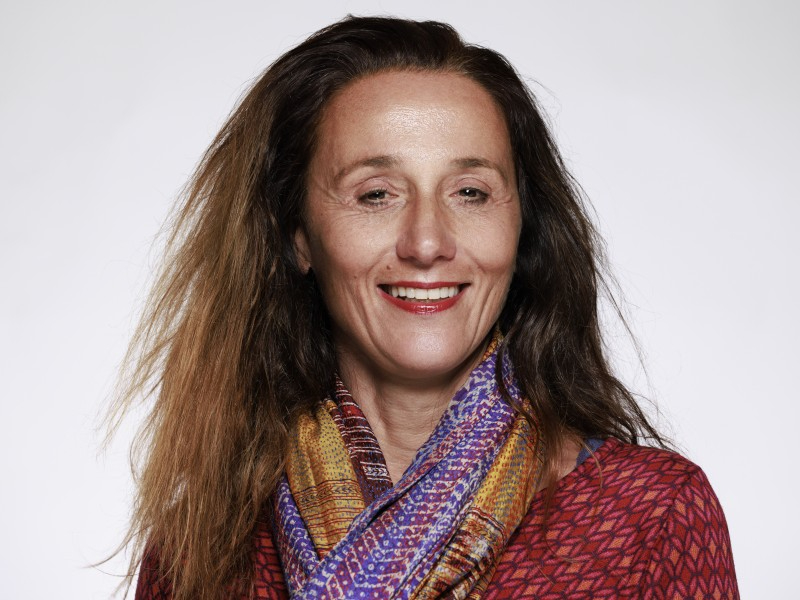Share post now
Article
Glencore sues Colombia over Cerrejón Mine
22.03.2022, Trade and investments
No sooner had the announcement on giving up fossil fuels been made, than Switzerland's Glencore International became the sole owner of Latin America's biggest open pit coal mine. It is even taking the Colombian State to court.

The Arroyo Bruno, a tributary of a major river in La Guajira, was diverted to intensify coal extraction at the La Puente quarry.
© Colectivo de Abogados José Alvear Restrepo (CAJAR)
On 11 January, Glencore – the world's biggest exporter of thermal coal – announced that it had acquired the stakes held by BHP and Anglo-American in "Carbones del Cerrejón", Latin America's biggest open-pit coal mine and one of the world's largest. The commodity trading multinational from Switzerland had struck a good bargain: thanks to higher demand and the corresponding high price of coal, Glencore was able to become the sole owner of "Carbones del Cerrejón" for just USD 101 million. The two other companies sold their stakes under pressure from their shareholders to give up the fossil fuels most harmful to the environment, for the sake of combating climate change. Glencore itself has no scruples in this regard, even though the company has committed to reducing its overall carbon footprint by 15 per cent by 2026, 50 per cent by 2035, and to becoming a zero-emissions concern by 2050.
A mine responsible for gross human rights abuses
"The Cerrejón coal mine has been operating for so many years now – mining began in 1985 – that the abuse of power and the asymmetry evident among the owners, the communities and the State have been amply documented. Severe human rights violations have been committed in particular against Afro-indigenous communities, mainly the Wayúu", says Rosa María Mateus of CAJAR, a Colombian lawyers' collective that has been championing human rights for the past 40 years.
"Carbones del Cerrejón has already been sanctioned in more than seven court cases", she continues. The penalties were never enforced, however, as the company benefits from the extreme poverty in these communities. La Guajira, where the mine is located, is Colombia's second most corrupt department. Children are dying of hunger and thirst, while the company takes advantage of the situation to offer compensation payments which the communities regard as a mockery. To address the climate crisis, which is hitting La Guajira's residents the hardest, we must change the economic model and get out of coal."
Constitutional Court declares Arroyo Bruno diversion unacceptable
One of the aforementioned rulings concerns the Arroyo Bruno, a tributary of a major river in La Guajira and which was diverted to facilitate expanded mining operations at the La Puente quarry. This river is flanked by tropical dry forest, a highly threatened ecosystem. In 2017, the Colombian Constitutional Court held that the approval process for expanded coal mining had failed to consider substantial social and environmental impacts on the rights of local communities. One crucial consideration was that the region is plagued by acute water shortages and is especially vulnerable to climate change.
The Court ordered that work should be stopped and a new environmental impact assessment conducted so as to gauge the compatibility of expanded open-pit mining with the protection of the communities' rights. In retaliation, Glencore filed a suit against Colombia with the ICSID, the World Bank's arbitration body, invoking non-compliance of the investment protection agreement between Colombia and Switzerland. In its complaint, the multinational asserted that the decision by the Colombian court regarding the course of the Arroyo Bruno, which was hampering the expansion of the mine, was "unreasonable, incoherent and discriminatory". To date, one arbitrator has been appointed and no further information has transpired, not even about the compensation being sought by Glencore.
"It is outrageous that they are seeking compensation for the damage they themselves have caused", says an angry Rosa María Mateus. "The company claims to be following an environment-friendly policy and planting trees; as we have discovered, that is all a lie. It is not abiding by environmental standards and is not managing to repair even the barest minimum of the damage caused. We were able to verify the existence of water and air pollution and the negative impacts on the health of citizens. These are very serious breaches, especially in the light of discussions in Europe about decarbonisation and leaving coal in the ground".
Possible use of an amicus curiae brief
So what can CAJAR do? Rosa María Mateus admits that they have limited room for action. The only option is known as an amicus curiae brief, which is a written submission through which the voice of communities can be heard; but it must be approved by the court. According to Mateus, the court nevertheless offers no guarantees for victims, as it is a kind of private justice system that was created to protect big companies.
"We will be attempting it all the same, and have just started compiling the arguments of the communities. Next, we plan to forward the amicus curiae brief to friendly organisations like Alliance Sud, so that they can help us publicise the situation. Companies command considerable media clout, and it is their own truths that get published, not the tragedies of victims. Glencore has been extracting raw materials on a large scale in Colombia, despite the very weak state of the country's economy. The company poses a threat to the sovereignty of the State and above all to the courts, whose jurisdiction it is calling into question – a practice that harks back to colonial times."
Glencore's third lawsuit against Colombia
According to the United Nations Conference on Trade and Development (UNCTAD), Colombia is facing a flood of 17 lawsuits, a number that does not even include the latest one by Glencore. For the first time in 2016, the corporation had challenged a contract relating to the Prodeco coal mine and obtained USD 19 million in compensation payments. Such cases are adjudicated by a court comprising three arbitrators, of whom one is nominated by the foreign multinational corporation, one by the accused country and the third by both parties. The courts may admit amicus curiae briefs – for the most part written submissions generally laying out the viewpoints of the affected communities, and submitted by NGOs. So far, 85 amicus curiae applications have been filed, of which 56 have been admitted. The investment protection agreement on which the Glencore lawsuit is based does not provide for the possibility of an amicus curiae brief. The agreement is now being renegotiated and Alliance Sud is calling for the new agreement to provide for possibility of an amicus curiae brief, even though this is of no relevance to the pending proceedings.
Rosa María Mateus will be in Switzerland at the end of April / beginning of May to report on this case.

© Rosa María Mateus
"The children starve and die of thirst; the company takes advantage of the situation and offers compensation payments that are a mockery in the eyes of the communities."
